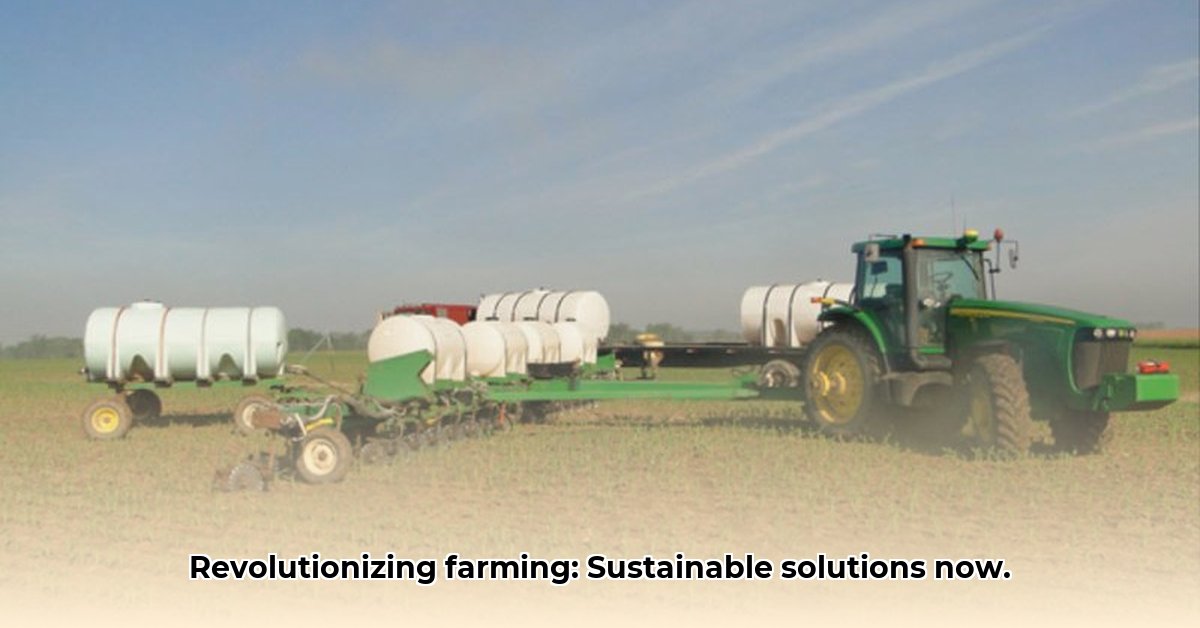
Bryant Tractor's Potential Role in Sustainable Agriculture
Bryant Tractor, a local equipment dealer offering brands like Toro, Cub Cadet, and Honda, presents a compelling case study in the potential for agricultural equipment providers to contribute to sustainable farming practices. While definitive conclusions require further data, several factors suggest Bryant Tractor could be a significant player in this transition. How can they—and their customers—further this positive impact? For more information on different types of tractors, see this helpful resource: Tractor Types.
Analyzing Bryant Tractor's Current Contribution
Bryant Tractor's current contribution to sustainable agriculture is largely inferential, pending further investigation. However, several key aspects point to potential for positive environmental impact:
- Extended Equipment Lifespan: The dealership's offering of both new and used equipment directly contributes to reducing waste by extending the operational life of farm machinery. This reduces the need for constant replacements, lowering the overall environmental footprint. How significantly does this impact their clients' overall sustainability?
- Diversity of Equipment Offerings: Access to diverse brands allows farmers to choose from a range of options, including potentially more fuel-efficient and environmentally conscious models. What percentage of their inventory comprises these sustainable options?
- Opportunity for Growth: The dealership has significant potential to actively promote sustainable practices and become a leader in green agricultural equipment sales. This requires a proactive approach to inventory management and customer education. What specific strategies would maximize this potential?
Challenges and Uncertainties
Several factors limit our ability to definitively assess Bryant Tractor's current impact:
- Lack of Transparency: Without detailed information on the dealership's inventory, it is difficult to determine the precise proportion of fuel-efficient and sustainable equipment offered. A comprehensive inventory analysis is needed.
- Limited Customer Data: Understanding customer purchasing patterns is crucial. Even if sustainable options are available, farmer choices may be influenced by various factors. A customer survey could reveal valuable insights.
- Indirect Impacts: Quantifying Bryant Tractor's overall environmental contribution requires data on both equipment sales and the farming practices of their clients. This would require a wider scope of analysis.
Actionable Steps for Increased Sustainability
Both Bryant Tractor and its customers can proactively enhance their contributions to sustainable agriculture.
For Bryant Tractor:
- Conduct a Comprehensive Inventory Audit: Categorize equipment based on fuel efficiency and emission levels to highlight sustainable options. This transparency enables informed customer choices.
- Implement a Targeted Customer Education Program: Workshops and informational sessions on sustainable farming practices and fuel-efficient equipment will empower farmers to make informed decisions.
- Establish Strategic Partnerships: Collaborate with manufacturers specializing in sustainable farm equipment to expand offerings and showcase a commitment to environmental responsibility.
- Invest in Mechanic Training: Ensure your technicians are skilled in servicing and repairing eco-friendly equipment to support customer adoption and maintenance.
For Farmers:
- Perform a Thorough Cost-Benefit Analysis: Evaluate the long-term cost of ownership for fuel-efficient equipment, considering lower running costs and longer operational lifespan.
- Explore Funding Opportunities: Investigate government grants and loans specifically designed to support the purchase of sustainable farming equipment to offset upfront costs.
- Actively Advocate for Change: Engage in supporting policies and initiatives promoting sustainable agriculture and the development of environmentally friendly equipment.
Collaboration Towards a Sustainable Future
Sustainable agriculture requires a collective effort involving farmers, equipment providers, and government agencies. Government support through incentives and subsidies is crucial, alongside research funding supporting innovative, eco-friendly technology development. Bryant Tractor, in its unique position, can play a pivotal role in facilitating this transition.
Future Research Directions
To better quantify Bryant Tractor's impact, it is essential to address the following research areas:
- Detailed Equipment Inventory Analysis: A complete inventory analysis, categorized by fuel efficiency, emissions, and sustainability features, will reveal the scale of sustainable offerings.
- Comprehensive Customer Survey: Directly surveying farmers on their equipment choices and farming practices will provide invaluable insights into the actual adoption of sustainable technologies.
- Regional Market Analysis: Analyzing the market share of sustainable agricultural equipment in Bryant Tractor's service area provides context for understanding the dealership's role in market dynamics.
By addressing these research gaps, a much clearer and more comprehensive understanding of Bryant Tractor's contribution to a sustainable agricultural future will emerge. Continuous improvement and data-driven decision-making are key to success.